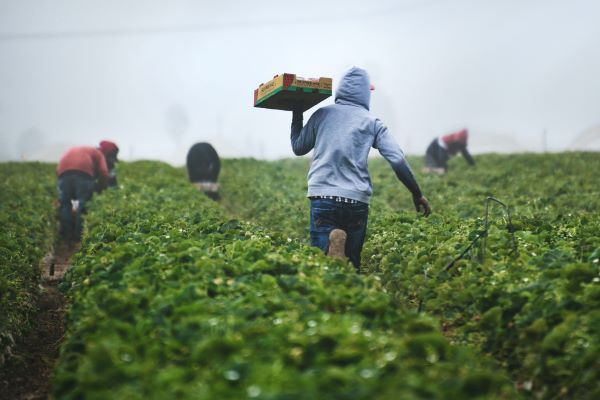Demand for a stable food supply is dire across Africa. Amid climate-induced weather events, international conflicts and a growing population, feeding the nation’s most hungry individuals has become increasingly difficult. African farmers face several challenges — climate change, poor infrastructure and poverty — inhibiting growth and prosperous yields.
A lack of agricultural resources — including green technology and refrigeration — poses the most significant problem for growers. Yet, investing in refrigeration could take Africa’s agrarian economy to new heights. Here’s how refrigerators would transform African farming systems for the better.
Current State of African Agriculture
Nearly 60% of Africa’s population are smallholder farmers, with sub-Saharan Africa’s gross domestic product at roughly twenty-three percent. Despite this, agricultural productivity lags. African farmers could increase crop output three-fold through land expansion, sustainable practices and post-harvest preservation.
Currently, maize yields are six times higher in North America than across Africa. Rice production is also only half of Asia and North America’s gains.
The state of agriculture has left 281 million people hungry, especially following COVID-19 and extreme heat stress in the Horn of Africa. Perhaps more alarming, projections show Nigeria entering the top five most populous nations with 377 million people by 2050. African farmers must overcome financial constraints, technology limitations and distant markets to reduce post-harvest losses if they hope to meet food demand.
The Role of Refrigeration in Agriculture
Investments in refrigeration could prevent much of Africa’s agricultural losses. Refrigerators preserve food by slowing bacterial growth and rotting. Bacteria grow best between 40° and 140° Fahrenheit, causing whoever eats it to become sick.
A cooler set to 35° F and below can extend the shelf life of perishable goods by days, weeks or even months. For instance, storing bananas — one of Africa’s most popularly grown fruits — in the refrigerator keeps them fresh for one week longer than sitting out.
Smallholder farms must often travel long distances in hot weather to reach markets, where they lose ample amounts of crops and livestock goods. With refrigeration technologies, African growers can reach their destination without spoilage.
The Challenges of Implementing Refrigeration in African Farming
Adopting refrigeration in Africa’s farming system is complex, with costs and current infrastructure hindering efforts. Additionally, refrigeration requires a reliable, unlimited power supply — something most African growers lack. More recently, South Africa has endured eight to 10-hour power outages, while 600 million people had no electricity in 2021.
Much of Africa’s climate is equivalent to the U.S. planting zones 12 and 13 — where regions only dip to 60–70° F — which is too hot for most plants to thrive. This means African farmers must expend abundant energy to preserve perishables with refrigeration year-round.
African Innovation in Refrigeration
A Massachusetts Institute of Technology research team is designing a low-cost communal structure using evaporative cooling to preserve crops in Kenya. Evaporative cooling turns water from liquid to gas, absorbing heat and reducing the ambient temperature.
Although societies have utilized evaporative cooling for centuries, few structures are large enough to store mass crop yields. As a solution, the MIT researchers opted for upcycled shipping containers, upgrading them with solar power technologies and an insulated chamber for better sustainability.
They anticipate the 40-foot-long cooling facilities will stow 6,500–8,000 kilograms of produce — about 14,300–17,600 pounds. Perhaps more appealing, the design will cost half as much as manufactured refrigerators and freezers, enabling widespread adaptation.
Revolutionizing African Farming Systems With Refrigeration
Crop preservation is critical to providing safe goods to hungry populations and sustainably stabilizing the food supply for future generations. Integrating refrigeration technologies will tremendously impact Africa’s agricultural industry and economic growth.










[…] Source link […]
Comments are closed.